
The audience for dark, disturbing horror films is so small that every time an extreme title is released, it automatically attains cult status. Needless to say, we are not talking about mainstream studio fare here: most of these pictures either hail from overseas or were made on budgets so slender that they wouldn’t cover Batman V Superman’s catering bill.
There’s a good reason for why, every so often, horror has to turn nasty and address the issues that most movies don’t touch upon. Hollywood pictures either deal in accepted truths or they tell us things that we would like to believe, and if life is not all peaches and cream, then the love of a Manic Pixie Dream Girl will make everything just perfect.
In nasty, exploitative horror pictures, however, the family unit is either failing or dysfunctional, and not even Kirsten Dunst (or Natalie Portman or Anna Kendrick) will be able to fix it. These movies want to get under your skin, not prop up the fantasies of homemakers in Peoria.
True, some of them were made just so put rubes in seats, and Switchblade Romance didn’t say much about The Meaning Of It All, but it still had an attitude that’s absent from most multiplex fare.
If your ambition is to seek out as many nasty horror pictures as you can, then the following list should serve you well.
15. Ab-Normal Beauty
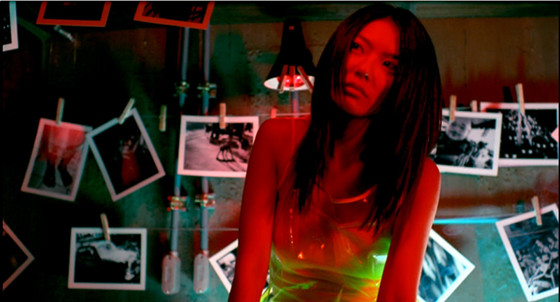
You’ve probably never heard of this Hong Kong horror movie from Danny and Oxide Pang, which is unfortunate because this is a much creepier film than The Eye, the duo’s earlier effort.
Unlikely ever to be remade starring Jessica Alba, Ab-normal Beauty tells the story of Jiney (Race Wong), a death-obsessed photographer who photographs car crash victims. As a friend attempts to curtail her obsession, Jiney’s behaviour catches the attention of a disturbed admirer who sends her a videotape that shows a young woman being killed. Certain it’s a practical joke, Janie investigates…and to reveal any more would be unthinkable.
If you’re familiar with the Pangs at all, you probably know them for their English language misfires The Messengers (with Kristen Stewart) and Bangkok Dangerous (with Nicolas Cage). While more slowly paced, Ab-normal Beauty has more style and atmosphere than either, and will remain with you long after the end credits.
14. Hostel: Part II
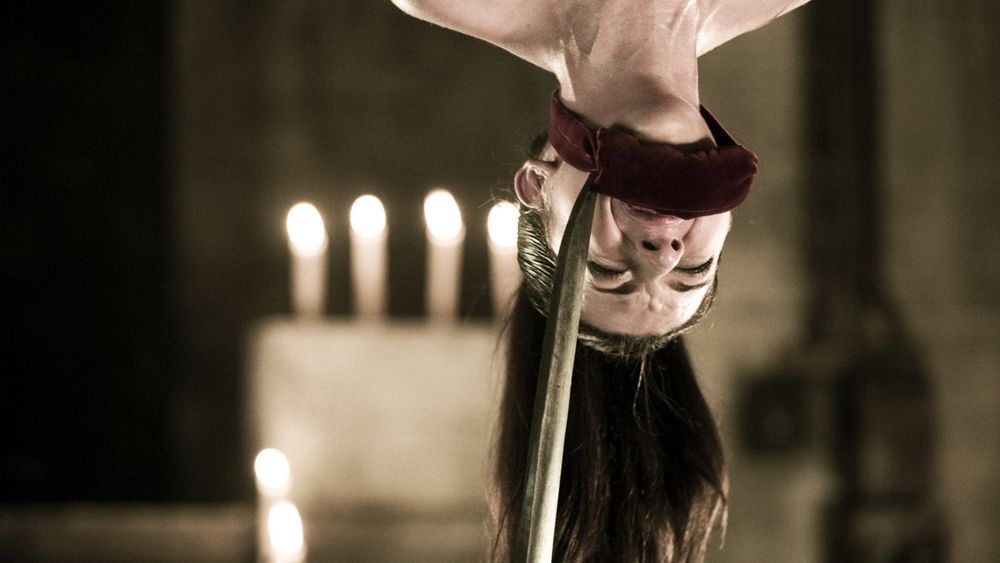
Everybody seems to hate Eli Roth but even though Hostel II is just an all-girl facsimile of Hostel I, he’s genuinely trying to make a modern day exploitation movie. In among all the gore and sleaze are cameos from Edwige Fenech (All The Colors Of The Dark) and Ruggero Deodato (Cannibal Holocaust), who gets one of the film’s best scenes as “The Italian Cannibal.”
Judged from that perspective, Hostel II works better than Rob Zombie’s Halloween reboot (released the same year), with a real 70s feel to the unrestrained narrative. It’s also nastier and bloodier, most explicitly in a sequence where a naked woman is hung upside down while another woman cuts her and bathes in her blood.
Throw in a decapitation, genital mutilation and a character being ripped apart by dogs and you’ve got a good old Drive-in movie that was made for multiplexes. If Roth added scratches and a few fake trailers, he could’ve given audiences a cult movie instead of a gratuitous sequel.
13. Red White & Blue
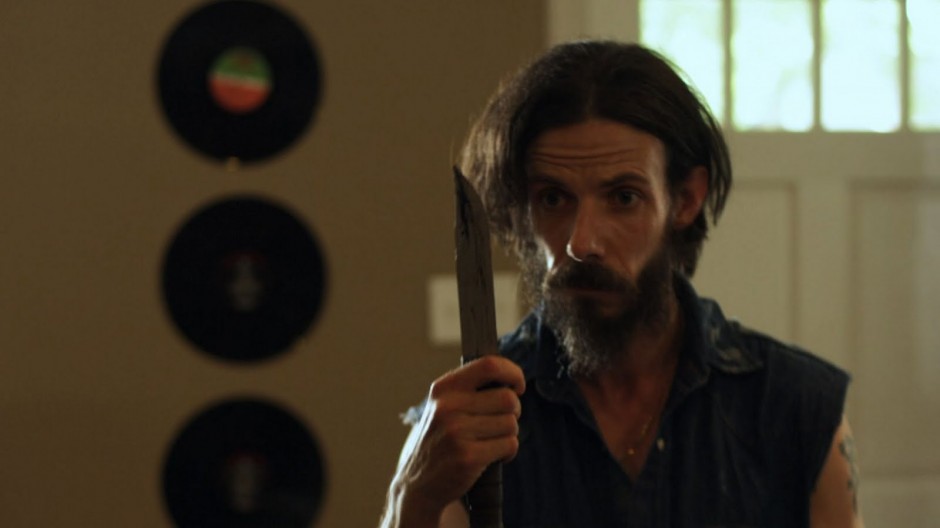
When aspiring rocker Franki (Marc Senter) realizes he’s contracted HIV from the promiscuous Erica (Amanda Fuller), he snaps and kidnaps her, little realizing that she has a platonic friendship with Nate (Noah Taylor), an Iraq War veteran skilled in interrogation.
Billed as a “slacker revenge movie”, Red White & Blue is a deceptively simple tale about three very different people and how their choices result in escalating violence. It’s so low-key that once the story takes hold, you don’t notice how economical Simon Rumley’s script and direction are or how perfectly cast the movie is, a true sign of high-quality filmmaking.
Released in the same year as the Elm Street remake, Red, White And Blue would, in a fair world, have blown that turkey out of the water and bagged a few awards in the process. After playing a few festivals, it disappeared before eventually resurfacing on DVD with absolutely no fanfare whatsoever – the critics were too busy gushing over Paranormal Activity and Insidious to notice.
12. Chaos

Chaos opens with a text crawl that claims the movie is “based on actual events” and that the film’s depiction of violence is intended “to educate and, perhaps, save lives.”
Far from being based on “actual events”, however, Chaos is an uncredited remake of Wes Craven’s The Last House On The Left (itself inspired by Ingmar Bergman’s The Virgin Spring), which it follows beat for beat. Two girls are abducted, raped and murdered by a group of escaped convicts. When their van breaks down, the killers seek shelter at a house they don’t realize belongs to the parents of one of their victims. The moment the penny drops, mom and dad take a brutal revenge etc etc.
Wrestler-turned-director David ‘The Demon’ DeFalco only departs from Craven’s narrative at the end, changing it so that the main villain is the last man standing, howling maniacally before the end credits roll. If Last House was a movie about the dehumanizing effects of violence, then Chaos is a movie about….what, exactly? Informing America’s teens that they’re all potential murder victims? Or does it just want to exploit the fear of crime in order to sell tickets?
11. Rampage
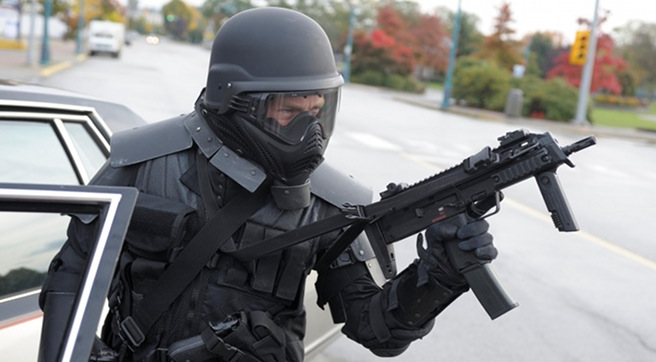
The first Uwe Boll movie to receive mostly positive reviews, Rampage follows Bill Williamson (Brendan Fletcher), a particularly unpleasant young man who for no clear reason decides to go on a killing spree.
Largely improvised, the film takes place in a world of minimum wage jobs and branded stores with indifferent staff, where casual misanthropy and “fake news” are broadcast 24/7 on radio and TV. Is Williamson a product of his environment? He certainly speaks like one of the radio shock jocks, pointing out that seventy million people are brought into the world each year just to suck up our resources.
“There’s too many people,” he says. “So what do we do? Just keep them around? Let’s kill them!”
Embarking on a shooting spree, he indiscriminately kills beauty shop employees as well as bank tellers, whose money he steals while telling them, “Everything you use it for is stupid and senseless – have a nice day.” He burns some of the money, but he also keeps some for himself, which seems to contradict his statement that his mission was to “clean the world” for the rest of us.
10. The Human Centipede II (Full Sequence)
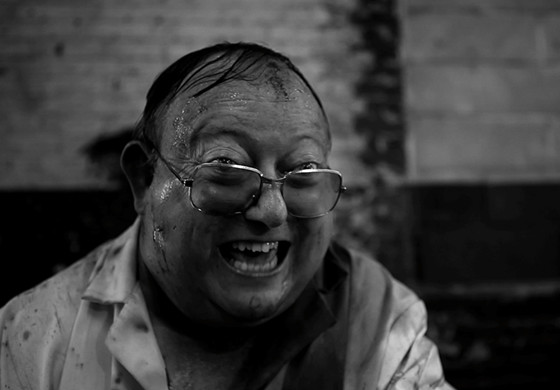
Whatever points director Tom Six wanted to make were delivered (with sledgehammer subtlety) in The Human Centipede: First Sequence, which the BBFC passed uncut only after a lawyer informed them that it wasn’t in contravention of the Obscene Publications Act. In this sequel, Six mocks the first film’s critics and tries to be as disgusting as possible, but the BBFC weren’t prepared to tolerate his excesses a second time.
Aroused by “the total degradation, humiliation, mutilation, torture and murder of his naked victims”, the main character uses sandpaper to masturbate over a DVD of The Human Centipede, which the Board claimed established a link “between pain, perversity and sexual pleasure.” Such material would be “unacceptable to the public” and the film was refused a certificate.
It was only passed after the distributor was forced to make 32 cuts to “scenes of sexual and sexualized violence, sadistic violence and humiliation and a child presented in an abusive and violent context.” Which is all very well, but it still disguises the fact that it’s not a particularly good film.
9. Audition

Audition premiered in Canada in October 1999 but didn’t receive a general release until 2002, when it premiered on DVD in the US. Of all the foreign-language titles on this list, Takashi Miike’s film is the one you need to beg, borrow or steal a copy of.
When a lonely widower attempts to begin dating, he uses a filmmaker friend to “audition” prospective girlfriends, and eventually settles for Asami (Eihi Shiina), unaware she has a past that’s best described as “complicated.” But if you think this is going to be a psychodrama of the Fatal Attraction variety, guess again – Glenn Close never put needles in Michael Douglas’s eyes or displayed a penchant for amputation.
When first shown in Japan, Audition caused walkouts, with one outraged female viewer telling the director – to his face – that he was a very sick person. Don’t be fooled by the deliberate pacing because this is a picture that, like all the best horror movies, creeps up on you. If you only watch one of Miike 90+ films, make it this one.